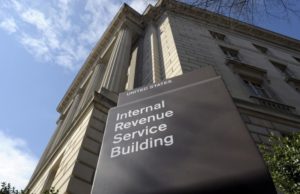Millions of Big Earners Should Expect Higher Payroll Taxes in ‘17

For those who have been excited to see their tax bill go down under a Trump administration, there might be cause for some concern, especially for some of the country’s highest earners. That’s because for the millions of workers who pass a certain threshold a tax hike is coming. So why the increase?
First, this change was in place before President Trump won the election in November. This scheduled change comes in the form of an adjustment to Social Security payroll taxes, and it will affect a lot of high earners. Over the past several years, workers have paid a 6.2 percent payroll tax to Social Security, which is matched by employers and automatically deducted from their paychecks.
That number will remain the same in 2017, but there is a catch. It used to be that workers only paid that amount on the first $118,500 they earned for the year. This year, that threshold increases to $127,200. That will amount to hundreds of dollars for anyone affected. Meantime, for self-employment workers, the news is even worse because they are forced to pay the full Social Security tax themselves without splitting the cost with an employer.
So how many people are we talking about? Anyone that makes less than $118,500 won’t be affected but the estimated 12 million workers that make more than that will see a hit, which amounts to one of the biggest changes in the tax code in nearly 30 years.
http://time.com/money/4628475/payroll-taxes-social-security-2017/
When Not to Name Your Spouse the Beneficiary of Your IRA
When Not to Name Your Spouse the Beneficiary of Your IRA By Robert Cavanaugh In most cases, naming your spouse as the beneficiary of your IRA makes the most sense. However, depending on your wishes, other beneficiary arrangements may do a better job of accomplishing your goals. First, let’s take a quick look at the…
IRS Guidance for SEC Disclosure of Listed Transaction Penalties
IRS Guidance for SEC Disclosure of Listed Transaction Penalties On August 15, 2005, the IRS issued guidance to taxpayers who are required to disclose listed transaction penalties to the SEC. Rev. Proc. 2005-51 sets forth the form, content, and timing of SEC disclosures for certain reportable transaction penalties that taxpayers are required to make pursuant…
How to be a “Tax-Conscious” Investor
How to be a “Tax-Conscious” Investor “Uncle Sam wants you!” goes the slogan on that old poster. He also wants you to pay taxes. On the income from your employment. On what you earn from many of your investments. On a portion of the gain from the sale of those investments. But there is a…
President Going After the Wealthy Again With Proposed Tax Hikes
President Going After the Wealthy Again With Proposed Tax Hikes By Alan Olsen, CPA, MBA (tax) Managing Partner Greenstein Rogoff Olsen & Co. LLP The divide between Republicans and Democrats on Capitol Hill appears to be spreading even wider after President Obama used his State of the Union Address to take dead aim at high…




